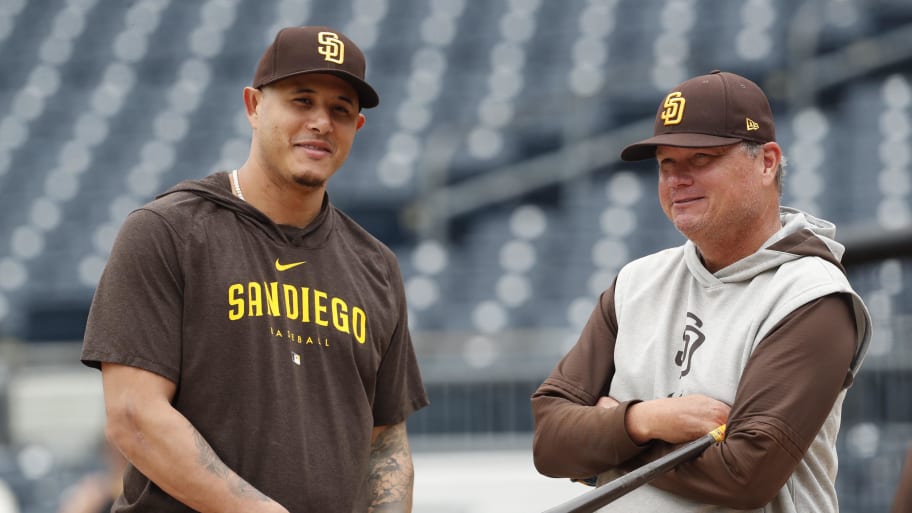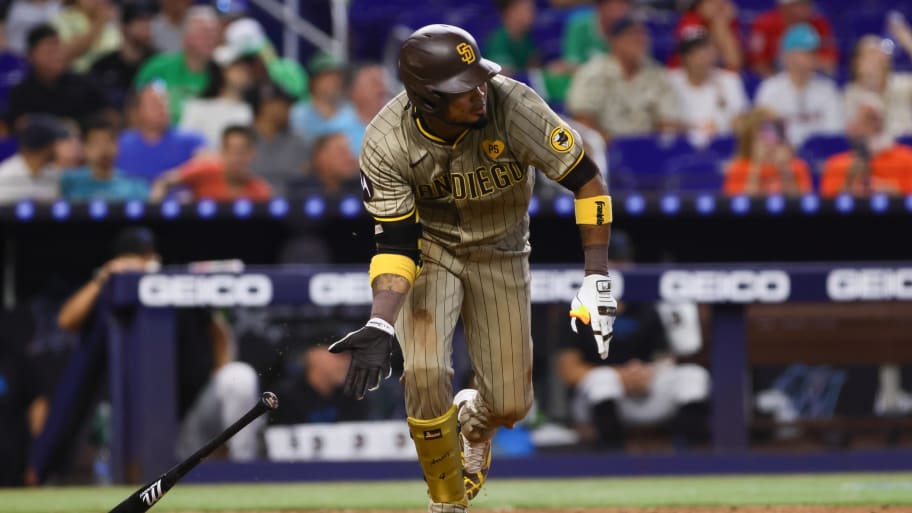
Love blooms where it wishes. But as a helpful time and place to nourish it, the summer of 1980 on the corner of Magnolia and Lyndhurst in the Dilworth section of Charlotte, was just about heaven sent for an 11-year-old boy falling in love with baseball.
At cozy Crockett Park, which opened in 1941 as Clark Griffith Park with its covered wooden grandstand and a left field wall just 289 feet from home plate, the Double A Charlotte O’s were on their way to winning the Southern League championship with a 19-year-old third baseman named Cal Ripken Jr. One of the team’s clubhouse attendants was an 11-year-old kid from the Starmount neighborhood named Mike Shildt.
To understand why today the red-hot San Diego Padres have flipped in one year from chaos to cohesiveness, especially with how they play offense, follow the trail back to Magnolia and Lyndhurst.
Mike’s mom, Lib, was the administrative assistant to O’s general manager and owner Frances Crockett. Each afternoon she would leave the ballpark to pick up Mike from school and bring him to the ballpark. His duties were both ordinary and endless, such as picking up towels, running errands, fetching food for reporters in the press box and cleaning the players’ spikes. Mike was such the industrious type that he was not content to simply clean the spikes. He hand-buffed them with paste into a fine luster. The O’s finished sixth in the Southern League in runs but led the loop in shiniest shoes.
The team’s manager was Jimmy Williams, a kindhearted baseball lifer who was logging his 35th year playing and managing in the minors—without yet spending a day in the big leagues. One of the players promoted in May from A ball to join the O’s was an 18-year-old infielder/DH from Puerto Rico named Victor Rodriguez. When Ripken made occasional starts at shortstop, Rodriguez played third base.
Shildt became hooked on baseball that summer. The players would let him shag balls during batting practice. Ripken would hit him groundballs in the infield. So began a life so dedicated to the game that Shildt became one of the rare successful major league managers who never played pro ball. Only three managers who did not play pro ball have a better winning percentage over at least five seasons than Shildt’s .559: Joe McCarthy (.615), Frank Selee (.598) and Earl Weaver (.583), all Hall of Famers. In St. Louis and now in San Diego, Shildt always has worn number 8 as a tribute to Ripken.
Shildt had spent two seasons as a coach with the Padres when the team hired him last November to replace Bob Melvin, who they permitted to leave for the San Francisco Giants after San Diego stumbled through an 82–80 season. Shildt needed a hitting coach. Forty-four years after they met in Charlotte, Shildt hired Rodriguez.
“I shined Victor's shoes,” Shildt says. “That was 1980 in a Double A clubhouse with the Charlotte O's. Yeah, I've known Victor a long time.
“I tried to hire him in my previous situation. And I have a ton of respect for Victor the person, but also a tremendous amount of respect for the ability he has from a hitting standpoint. This guy's really, really good. And he's got a great way about it.”
Under president of baseball operations A.J. Preller, the Padres never had established an offensive identity. Rodriguez is Preller’s 11th hitting coach in 11 years. The Padres chased every hitting trend imaginable. Preller, for instance zigged from having dual hitting coaches (Alan Zinter and Luis Ortiz in 2017), zagged to the youngest hitting coach in the big leagues (28-year-old Michael Brdar in 2022) and zigged again to an “offensive coordinator” in the role of hitting coach (Ryan Flaherty in 2023). In that time the Padres never finished in the top half of NL hitting in any full season.
With Rodriguez, 63, reunited with Shildt, 56, the Padres are winning with a decidedly old-school approach. It’s as if they have gone back in time to Charlotte, spraying line drives around the field, embracing the value of balls in play, dropping bunts, taking extra bases and playing a symphonic brand of offense with beautiful teamwork. San Diego has a chance to become the first team to reach the playoffs with 1,000 singles—yes, singles!—since the 2016 Red Sox and the dawning of analytical baseball. No team has won a pennant with 1,000 singles since the 2015 Royals, World Series champions synonymous with a slashing style (fewest strikeouts in baseball, 24th in homers) that was extinguished by the number-driven quest for power.
After a 50–50 start, the Padres have built a 16–3 run with the best revival of that style in the game. San Diego is a rally team, stringing together hits like pearls on a necklace. Remember last season how San Diego so crumbled under World Series expectations that it was the worst hitting team in baseball in close and late situations (.199)? This year the Padres are the best in the clutch (.289).
There is more. Much more. Look how Shildt and Rodriguez have turned around this Padres offense with an emphasis on old-school skills:
Rodriguez is a believer in putting the ball in play and driving the ball with power to both gaps. In addition to those tenets, Shildt believes in moving runners instead of waiting for a home run to be hit. In recent games, centerfielder Jackson Merrill bunted (on his own) in the middle innings with his team trailing and Shildt started runners at first and second on a full count to Xander Bogaerts, who swatted an opposite field single with an abbreviated stroke to spark a comeback against Pittsburgh.
Shildt reminds me about a conversation we had nine months ago about his goal to get San Diego to play with a more diverse offense.
“Yeah, we actually spoke about it. I remember the winter meetings,” he says. “About how it’s good to have a club that has that kind of range—a lot of different clubs in their bag. Clearly the addition of [Luis] Arráez, [Donovan] Solano and [David] Peralta have helped that. The more guys that have plus bat-to-ball skills like they have, the easier it is to buy into an offensive approach that we have identified and established with Victor Rodriguez. He’s done a tremendous job.

“But really, it's in concert and partnering with the players. And our players—from spring training—bought into the holistic approach of being able to play this way. I love the way Toddy [Fernando Tatís Jr.] sums it up: ‘Do what the game calls for.’ And have the awareness to do it and then the ability to do it.
“And of course the preparation allows you to execute in real time. It's a bunch of guys that have high baseball IQs. They like to play and are looking to do whatever they can to score runs and help us win games.”
The Padres were dysfunctional last season. Their clutch hitting was abysmal. Rodriguez’s quick smile and easy going demeanor help establish the positive vibe on this team.
Like Shildt, Rodriguez paid more than his fair share of dues to earn big league respect. He signed with the Orioles at age 15, five months before his 16th birthday, for a $29,000 bonus. He left 10th grade in Puerto Rico to play in Bluefield, W.Va, for $500 a month, half of which he used for living expenses and half of which he sent home to Naguabo.
“It’s a big thing there,” he said then of his opportunity in pro ball. “The whole town was happy. I miss my family, but I’d rather be here because one day I expect to go to the top.”
He became the youngest player in Orioles organizational history. There was one problem: Bluefield had a local ordinance that prohibited minors from working past 9 p.m. As the clock would near the appointed hour, his manager, Ben Hines, would pull him from the game. Incredibly, given most players were four to six years older, Rodriguez hit .293.
He reached the big leagues in1984 with the Orioles but didn’t stay long. Including a brief stint with the 1989 Twins, Rodriguez played in just 17 big league games. He hit .429, the third highest career average of anybody with at least 28 at-bats in the show.
Bluefield was the start to 19 seasons Rodriguez played in the minors. He could always hit. He batted .295 over almost 7,000 plate appearances. He logged another 17 years as a minor league coach before joining the 2013 Red Sox as an assistant hitting coach, where he gained the trust of Bogaerts, then a rookie and now the San Diego second baseman. Five years coaching in Boston preceded six years with the Cleveland Guardians before Shildt and the Padres came calling.
Between them, Shildt and Rodriguez have 73 years of experience in pro baseball, much of it in the minors. They are building an offense the likes of which Padres fans have never seen. San Diego has never led the league in hitting, but here they are. Moreover, the Padres have the profile of a dangerous postseason matchup. Their two biggest strengths are an offense that puts the ball in play and a deep, swing-and-miss bullpen. Those are two pillars that play especially well in October.
Crockett Park, the place where Shildt and Rodriguez met and where their love of the game bloomed, is long gone. In 1985, it burned to the ground in less than 15 minutes. The O’s played there with temporary bleachers until the last game in 1987. By then the clubhouse where Shildt shined and buffed Rodriguez’s shoes, lost to the fire, had been replaced by a trailer.
Forty-four years after they first met, Shildt and Rodriguez are back working together. One of the beauties of their reunion is that their team plays baseball as if it’s 1980 again.
This article was originally published on www.si.com as How the Padres Went Back in Time to Build a Playoff Team.







